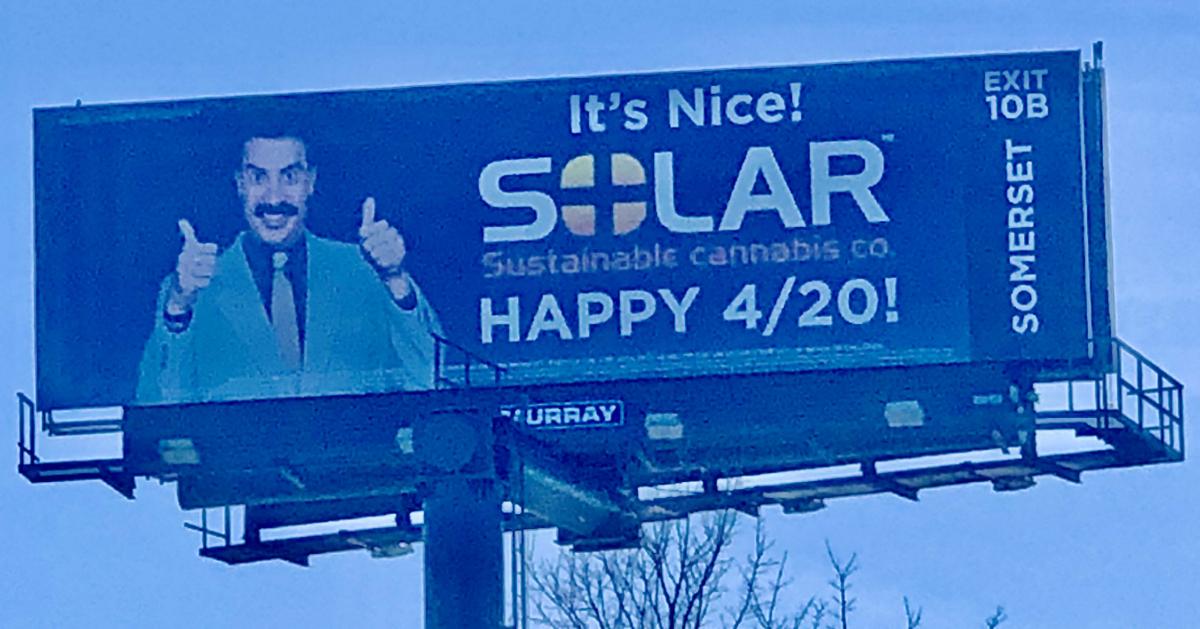Sacha Baron Cohen Sues Over Unauthorized Ad Campaign
By Jennifer E. RothmanJuly 14, 2021

Earlier this week, film and television actor Sacha Baron Cohen and his company, Please You Can Touch, sued Solar Therapeutics in district court in Massachusetts for the unauthorized use of his likeness, Borat character, and the character's catch-phrase in a billboard advertisement for a cannabis company. The complaint sets forth claims for a right of publicity violation under Massachusetts law (Mass. Gen. Laws Ann. Ch. 214 Section 3A), false endorsement under the Lanham Act (Section 1125), and for copyright infringement. The copyright infringement claim is focused on the unauthorized use of the Borat character, rather than the use of the photograph of Cohen. I suspect the use of the photograph was unauthorized, but if it was licensed that would likely knock out the copyright claim--though not the right of publicity claim here as the unauthorized use of Cohen's image in an advertisement would likely overcome any copyright preemption defense.
Here's the offending billboard:

This case seems like a slam dunk for Cohen, which may explain why within 3 days of receiving a cease and desist letter the defendant took down the billboard. Should this case not settle--unlikely--the main action will be on the damages--as Cohen is seeking "at least $9 million."
Of particular interest to me is that much of the complaint is styled in dignitary terms. Cohen carefully curates his image and generally turns down all endorsement deals for advertising, even very lucrative offers. He also was particularly troubled by being associated with the cannabis industry as he has not used cannabis, does not wish to be associated with it, and notes that there is a controvery among the Orthodox Jewish community, in which he was raised, about whether "cannabis use is a violation of Jewish law." Given his status as an observant Jew, Cohen does not want to be brought into the controversy over cannabis.
This aspect of the case reminds me of the O'Brien v. Pabst Sales case from 1941, in which the plaintiff, David O'Brien, a well-known college football player, had his name and likeness used on a calendar distributed by the maker of Pabst Blue Ribbon beer. His main objection to the use was being associated with alcohol, even though he was not otherwise opposed to doing endorsements. (I discuss the details of this case in my book on the right of publicity.)
Cohen's lawsuit is a good reminder to companies doing local advertising and who may not routinely consult with counsel before creating advertisements that you cannot just pop a celebrity into your ad campaign without permission.
Complaint, Cohen v. Solar Therapeutics (D. Mass., Filed July 12, 2021)
